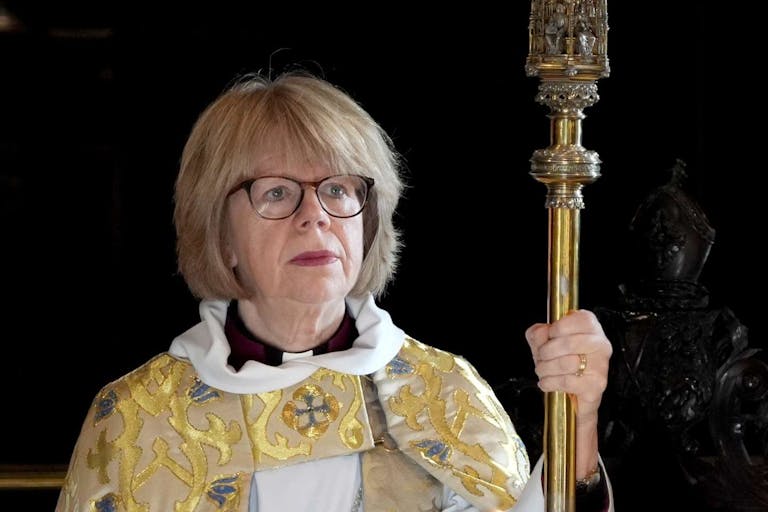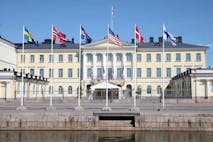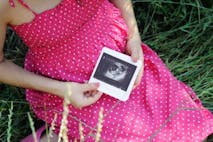
New Archbishop of Canterbury warns of danger in legalizing assisted suicide
Nancy Flanders
·
I believed I had no right to mourn my aborted child. Then Christ set me free.
(Amanda Ladwig) There is a running joke among my family and close friends about my awkward responses to expressions of love. We have learned to laugh when I have those “Spock” moments, but the reason behind this reaction is far more complicated than simply not being a “hugger”. The truth is, for a long time, I felt unworthy of love and ashamed to receive it. This reaction was most profound when engaging with my children. Having the kind of past I have had (Tent Pegs & Powdered Cookies), there were many layers to this. However, I can easily trace the intense guilt and shame about loving and being loved, by my children in particular, to my abortion (Paper Bags & Lollipops).
Shame can be a useful thing. If we are guilty of something, it should point us to the cross to find forgiveness and reconciliation. Although, if our guilt and shame are ignored and never dealt with correctly, they don’t just disappear. They are pointed in the wrong direction. We will feel guilt about the wrong things. Then, shame inevitably becomes self-loathing.
The first step in dealing with my legitimate shame was a willingness to admit, without excuses or attempts at justification, the fact that I was guilty of having my unborn child murdered. The use of this word may make some readers uncomfortable, even those within the “pro-life” movement, and it should. It should make us more than uncomfortable. Nevertheless, it should not prevent us from speaking the truth. It was that same “uncomfortable” feeling, that same unwillingness to call abortion what it was, that enabled me to avoid the truth. My desire to try and soften what I had done led to a life of self-loathing and self-condemnation, because it removed the opportunity for repentance.
Every time one of my living children would show me affection or reach a milestone my heart would sing, but a shadow would quickly cover any feeling of joy. How dare I? How dare I rejoice over the life of these little ones when I was so quick to snuff out the life of another. Shame was preventing me from enjoying my living children.
READ: Can’t Stay Silent: Abortion is not ‘compassionate care’
There was another element to this feeling of guilt and shame; it was fear. I believed I had no right to mourn or love my aborted child, so shame and guilt had become the only way I knew how to feel anything about him. It was how I could prove that he mattered. I was afraid that if I stopped punishing myself for what I had done it would seem like I had forgotten my dead child, and I never wanted to forget. Shame had become the only way I could express love for him.
I had known Christ’s forgiveness in all areas of my life, except this one. Christ does not leave work unfinished and He doesn’t let us hide forever. He pursues us into the darkest parts of our lives until we grow weary of running away from His grace. I was tired; tired of being in a state of brokenness. I knew this wasn’t where Christ leaves His people. So, early one December morning, while the rest of my house slept, I stood outside in the falling snow and whispered my confession and plea for forgiveness to my Redeemer. I cried until my tears were spent and I had nothing left to mourn. I stood there for a while staring at the sky and considering how difficult the next part of this process would be. The battle line was drawn and healing was on the other side. To move past my guilt, I had to look my sin in the face and call it what it was. I was forgiven, I was now required to throw off the veil of shame and act like a chosen daughter of the King.
What would this mean? I would no longer cower, but stand in His grace and forgiveness. Armed well by His word and believing what He says is true, I would “stand against the devil’s schemes for my destruction” (Eph. 6:11). It would mean I would need to choose to confidently receive love from my children and humbly accept good gifts from my Redeemer. It would mean being courageous enough to mourn my dead child and claim him as mine. It would mean the next time someone called me a “hypocrite” or “murderer” because I spoke boldly about my abortion, I would face them with joy and declare the Gospel. And, it would mean I would need to learn how to give an authentic hug.
Editor’s Note: This post was originally published at Amanda Ladwig’s blog and is reprinted here at the request of the author.
Live Action News is pro-life news and commentary from a pro-life perspective.
Contact editor@liveaction.org for questions, corrections, or if you are seeking permission to reprint any Live Action News content.
Guest Articles: To submit a guest article to Live Action News, email editor@liveaction.org with an attached Word document of 800-1000 words. Please also attach any photos relevant to your submission if applicable. If your submission is accepted for publication, you will be notified within three weeks. Guest articles are not compensated (see our Open License Agreement). Thank you for your interest in Live Action News!

Nancy Flanders
·
Politics
Rebecca Oas, Ph.D.
·
Politics
Calvin Freiburger
·
Human Interest
Melina Nicole
·
Issues
Wesley J. Smith
·
Issues
Michael J. New
·